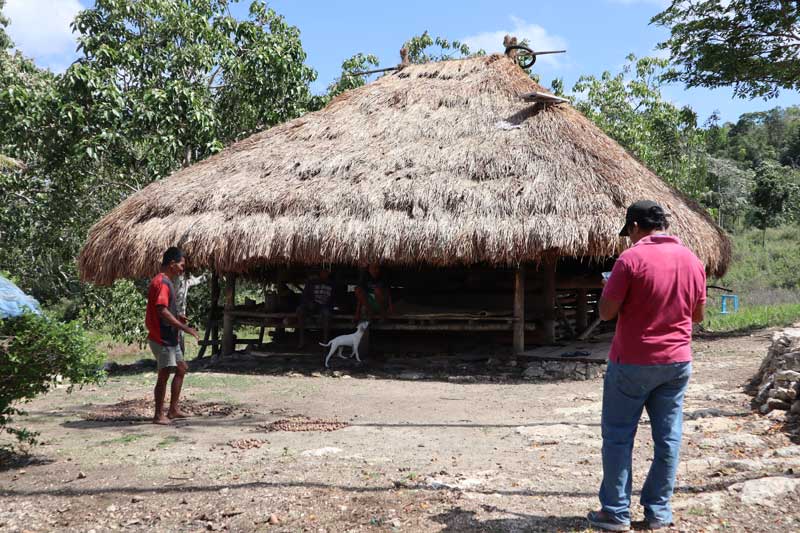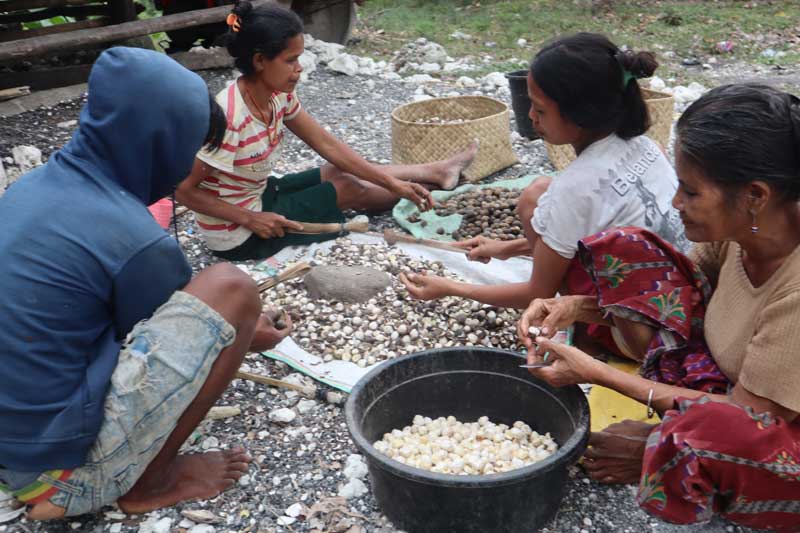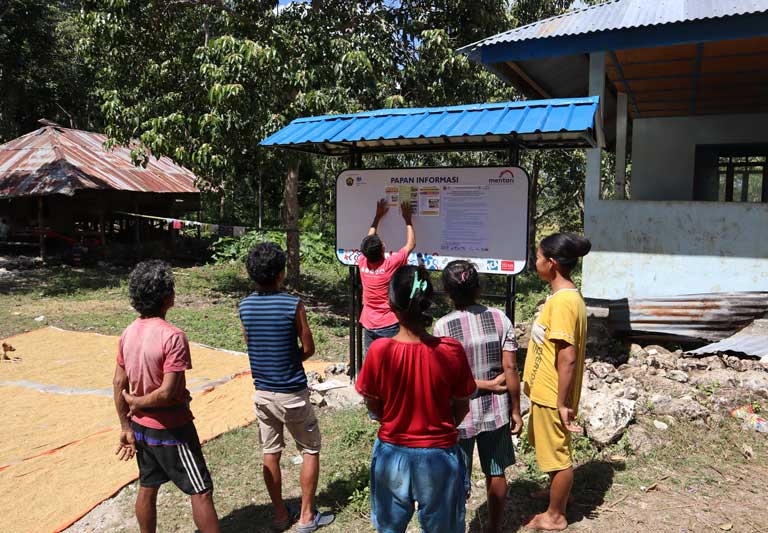Mata Redi village community in East Nusa Tenggara province has been waiting for electricity for a long time. The national electricity grid has not yet reached this village and the nearest state grid is still two kilometres away. Even the energy-saving solar lamps the government once provided can no longer be used as most of the batteries have expired. How do they manage without electricity and how can we give them access to renewable energy?
The lack of electricity has an impact on the village health centre and midwife Mariana Rambu Rauna is frustrated that she cannot help women seeking contraceptive devices or mothers giving birth because the instruments she needs have to be sterilized and that uses electricity: “Also, many residents are injured from falling down the stairs of their stilt houses at night but we have to refer any serious cases to the sub-district health centre because medical treatment and equipment need electricity and lighting.”
Mama Ines, on the other hand, is concerned about her children’s education. If the children don’t have much homework, the family go to bed early to save on the kerosene lamps whereas with good lighting the children could read and expand their knowledge at night or have time to play with their parents: “We usually refill the kerosene lamp every two days which costs IDR10,000.”
One young man, Vinsensius, feels he is deprived of access to the latest information and entertainment due to the lack of electricity and lighting. His cell phone has limited reception and he has difficulty recharging the battery: “We usually have to go to kiosks outside the village just to charge the phone.”
Many others reported the challenges of carrying out their activities without electricity.
To overcome this issue, MENTARI is implementing a solar PV power plant pilot project in Mata Redi village. An initial step was to conduct a feasibility study.
Gus Firman, MENTARI’s monitoring, evaluation and learning officer in the field, was involved in the study: “Our feasibility study shows that the village is quiet after five o’clock in the afternoon with people preferring to stay indoors. During the group discussion, we also found that the village is vulnerable to robbery at night – thieves are the ones that benefit from a village without lighting.”
In a focus group discussion with the village community on assessing gender safety, the MENTARI team learned that nights without lighting also make women and the elderly particularly vulnerable. The participants reported several incidents of violence against these vulnerable groups, including sexual violence, and one main cause is the lack of lighting.
To gather more in-depth data, Hivos conducted a study on the socio-economic aspects in several villages on Sumba Island, including Mata Redi village. This was a follow up on a pre-feasibility study by the Ministry of Energy and Mineral Resources’s Directorate General of New Renewable Energy and Energy Conservation, conducted with support from the Global Green Growth Institute. Dedy Haning, MENTARI’s demonstration project leader, explained: “We have identified the potential local products in certain villages, including Mata Redi. They are agricultural products, such as candlenut, corns and rice. We will intervene the relevant technology to improve the products and to absorb excess power. We also conducted assessment to see scores based on population, settlement pattern, economy, access to market, productive use of energy, and local institution capacity. Of all these assessments, Mata Redi village obtained the highest score compared with other two areas.”
The feasibility study supported MENTARI’s selection of Mata Redi village as the site for a 95 kWp solar PV power plant pilot project. The plant can provide lighting for 220 households and expand the service to Mata Woga village in RT 05 Dusun 1 area. Another strong potential in Mata Redi village is the presence of abundant water sources and solar water pumps that distribute water to 13 faucet points. These assets need to be managed through specific operation and maintenance mechanisms to ensure the water is not wasted.
The solar PV power plants in Mata Redi village are expected to improve productivity in the community over the next five years.
The community will maintain and manage the solar PV power plants with operators selected from within the community. In collaboration with Don Bosco training centre in Southwest Sumba, MENTARI provided solar PV power plant systems operation and maintenance training over three months for the five young men and five young women appointed as operators.
One young trainee, Jolinda Lubu Lena, expressed her gratitude and delight that their village will have electricity: “I want to contribute and build my village. I also want to make my parents happy. I don’t want my younger siblings to study in the dark like I had to. I want to have brighter nights and be able to do more productive activities.”









